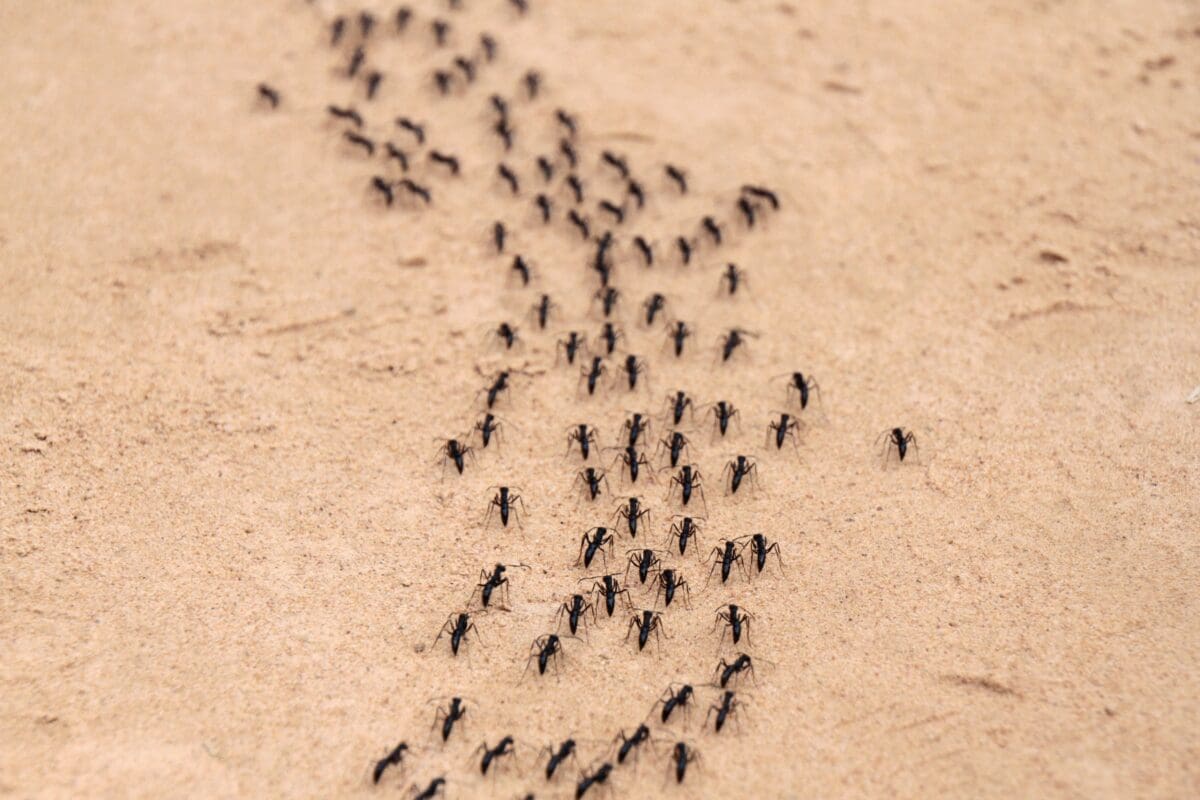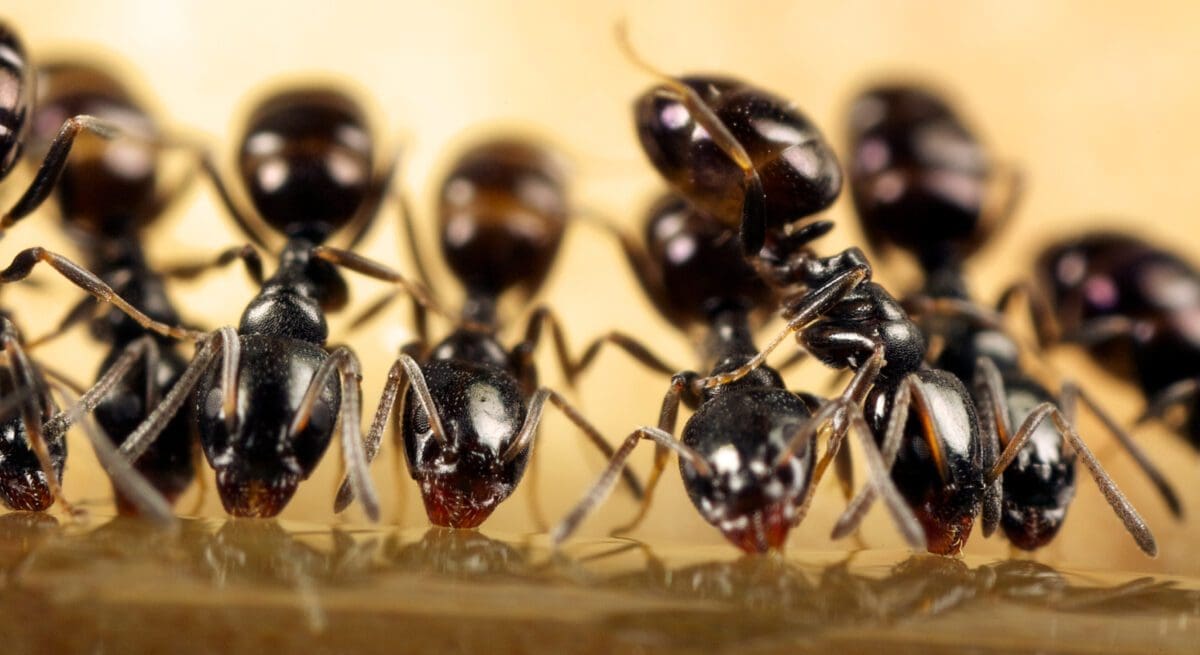Let me take you back to a night that inspired today’s topic. I was cozily tucked into bed, ready to drift off into a blissful slumber, when my tranquility was suddenly shattered by an unexpected and unsettling surprise—ants crawling on me while I sleep!
It’s a perplexing and disconcerting situation that left me scratching my head in confusion. How on earth did these tiny invaders find their way into my bed when I meticulously kept my room clean and free of crumbs and spills? Talk about anxiety!
If you’re in the same predicament, stick around. By the end of this article, you’ll be equipped with the knowledge needed to reclaim your bed and enjoy a restful night’s sleep—free from the unwelcome company of ants!
Ants are remarkably resourceful creatures, and when it comes to infiltrating our beds and bedrooms, they have several compelling reasons for doing so. Understanding these factors can help you identify potential attractants and take proactive measures to keep them at bay.
Here are some reasons why ants are attracted to beds and bedrooms:

Ants are opportunistic foragers—even the smallest crumbs or food particles can be enticing to them.
When you indulge in snacks or meals in bed, you may unknowingly leave behind tiny morsels that serve as a feast for ants. Spilled drinks or food wrappers around the bed can also attract ants searching for sustenance.
Certain ant species are attracted to moisture-rich or humid environments, and bedrooms can sometimes offer just that. Spilled drinks, leaky pipes, or damp spots in the room can draw moisture-seeking ants into our sleeping quarters.
Certain ant species, such as sugar ants, are drawn to sweet scents. If you have spilled sugary drinks or had fruits in your bed, their enticing fragrance could attract ants seeking their next meal.
Ants are known for their excellent sense of smell. Once they find a food source or a potential nesting site, they leave behind scent trails for their fellow colony members to follow.
If ants have previously discovered a food source near the bed or a way to access it, they’ll continue using these scent trails to come back, making it a persistent issue.
Beds provide warmth and shelter, especially in colder climates or during certain seasons. Ants may seek refuge from adverse weather conditions or use the cozy crevices of mattresses or bedding as nesting sites.
Bedrooms often have electrical appliances like lamps, chargers, or clock radios, which can generate heat. Some ant species are attracted to electrical equipment and might find their way into the bedroom through these items.
If your bedroom has windows or access to the outdoors, ants may be attracted to any nearby plants or greenery. You might just end up like me with ants crawling on me while I sleep.
Certain ant species are drawn to the honeydew produced by aphids and other plant-dwelling insects, which can lead ants inside as they forage for this sugary substance.

Ants can travel far in search of resources. If neighboring areas or rooms have an ant infestation, it’s possible for ants to migrate and find their way into your bed.
Related: Sleep Hygiene Checklist to Get Rid of Poor Sleep
Having ants in your bed may not pose an immediate and direct threat to your health, but it can lead to certain risks depending on the type of ant species and the extent of the infestation.
Here are some considerations regarding the potential dangers of having ants in your bed:
Ants can produce and leave behind debris, including body parts, feces, and pheromones. These particles may become airborne and trigger allergies or asthma symptoms in sensitive individuals, especially if the infestation is significant.
While most common household ants are not known for aggressive behavior, certain species can bite or sting if they feel threatened.
Ant bites and stings can cause discomfort, redness, and localized swelling. In rare cases, some individuals may experience severe allergic reactions to ant venom. Here are some common types of ants that may bite you while you sleep:
Having ants crawling on you while you sleep can be extremely unsettling and disruptive to your rest. The constant fear of being bitten or experiencing discomfort can lead to sleep disturbances and insomnia.
Scratching ant bites can break the skin and potentially lead to secondary infections, especially if the area becomes contaminated with bacteria.
Ants can carry bacteria and pathogens, and their presence in your bed may contaminate your bedding and sleeping environment.
Ants leave behind chemical trails for other ants to follow, and if left unchecked, this can lead to an increased ant population.
Getting rid of ants in your bed and bedroom requires a comprehensive approach that focuses on eliminating attractants, blocking entry points, and employing effective ant control methods. Here’s a step-by-step guide to help you reclaim your sleeping space:
Start by removing food crumbs, spills, or other potential food sources that may attract ants. Pay attention to areas near your bed, under furniture, and along baseboards. Vacuum the floors and wipe down surfaces to eliminate any ant-attracting residues.
Follow these cleaning tips:
Ants can enter through even the tiniest cracks and gaps in walls, windows, and doors. Seal these entry points using caulk or weather stripping to prevent further ant invasions.

Consider using natural ant repellents around your bed and bedroom. Certain scents, such as citrus peels, vinegar, or essential oils like peppermint or eucalyptus, can deter ants. You can also create barriers using substances like diatomaceous earth or baby powder to keep ants away from your sleeping area.
Make simple traps by mixing borax or boric acid with sugary substances like honey or sugar water. Place these traps near ant trails or suspected entry points, but keep them out of reach of children and pets.
Avoid eating in bed, and ensure that any food consumed in the bedroom is properly stored and sealed in containers. Ants are attracted to even the smallest food particles, so preventing access to their food source is crucial.
If your bedroom has access to the outdoors, consider trimming vegetation away from windows and walls. This can help reduce the chances of ants finding their way inside from nearby plants.
If the ant infestation persists despite your efforts, or if you’re dealing with aggressive ant species like fire ants, consider seeking professional pest control services. Pest control experts can identify the ant species and implement targeted treatments to eliminate the infestation effectively.
Remember that preventing ant infestations is not only a matter of comfort but also a concern for health and safety. While most ant bites are not harmful, they can cause irritation, discomfort, and even potential allergies in some cases.
Maintaining a clean bedroom can significantly reduce the risk of ant-related health issues and ensure a peaceful night’s sleep, free from disruptions caused by these tiny invaders.